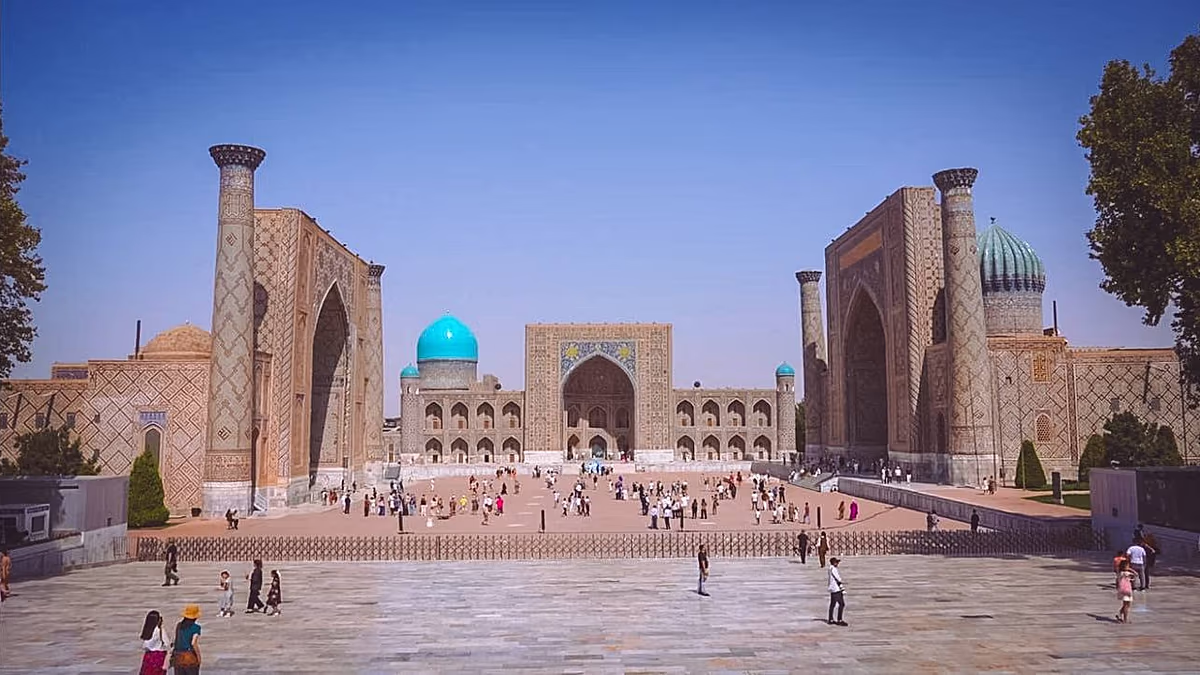Uzbekistan’s Tourism Renaissance: Building a Hospitality Industry for the Future
In the heart of Central Asia, Uzbekistan is experiencing a tourism boom that few could have predicted just a decade ago. As autumn 2025 unfolds, the country finds itself welcoming an unprecedented 8.6 million foreign visitors in just nine months—a stunning 112 percent increase from the previous year. This remarkable surge has positioned Uzbekistan as one of the region’s fastest-growing destinations, transforming its hotel sector from a mere component of tourism into a powerful economic engine. The HORECA EXPO Uzbekistan 2025 in Tashkent recently highlighted this transformation, bringing together over 100 companies, 67 industry experts, and more than 3,000 professionals from the hospitality sector. Under the theme “Investment in Service and Comfort: Business Solutions for HORECA,” the exhibition reflected the country’s new focus on quality infrastructure, professional training, and enhanced guest experiences—essential elements for sustaining this growth trajectory.
The scale of Uzbekistan’s tourism evolution becomes clear when considering the words of Shukhrat Isakulov, head of the Tourism Development Department: “If in 2016 we had just over three million foreign tourists, this year we expect 11 million.” This nearly fourfold increase within a decade has prompted the government to implement targeted subsidies for tourism infrastructure investors, covering hotels, recreational facilities, and transportation networks. The initiative isn’t simply about accommodating more visitors—it represents a comprehensive strategy to modernize the country’s hospitality landscape while creating sustainable employment opportunities. As international travelers discover Uzbekistan’s ancient Silk Road cities, snow-capped mountains, and vibrant cultural heritage, the pressure to develop world-class accommodations and services has intensified. Local authorities recognize that maintaining this growth requires not just more hotels but better ones—properties that can satisfy the expectations of an increasingly diverse and discerning global clientele.
The country’s hospitality revolution has attracted significant interest from European companies eager to bring international expertise to this emerging market. Swedish firm Akustik Norco Interior exemplifies this trend, offering specialized acoustic and interior design solutions previously unavailable in Central Asia. Sales Director Andreas Hultfeldt describes their approach as a “learning session,” noting that “acoustics aren’t yet fully developed here, so we can bring our experience and bespoke design to fit the market.” This collaborative mindset—adapting European standards to local contexts rather than simply imposing foreign models—characterizes the most successful international partnerships forming in Uzbekistan today. The technology sector is similarly evolving, with companies like MyBooking.uz creating domestic alternatives to global reservation systems. Unlike international platforms that often charge high commissions and favor major hotel chains, this locally developed service promotes independent properties, guesthouses, and eco-lodges, helping smaller businesses compete effectively while keeping more tourism revenue within the local economy.
Perhaps most encouraging is how domestic enterprises are increasingly participating in the hospitality supply chain. Hotel Line, a local manufacturer of textiles, furniture, and hotel amenities, has seen demand surge as both international and domestic properties seek reliable in-country suppliers. In their Tashkent workshop, artisans produce linens and furnishings that meet international standards while reflecting distinctive Uzbek aesthetics. “We’re seeing more interest from both foreign and domestic clients who want reliable supply within the country,” explains Maria Safarova, the company’s marketing head. This shift toward local sourcing does more than simply shorten delivery times—it creates a virtuous cycle where tourism growth supports related industries, broadens employment opportunities, and keeps more economic value circulating within Uzbekistan. The trend also helps hotels offer authentic experiences that contemporary travelers increasingly seek, blending global service standards with distinctive local character.
The integration of international expertise with local tradition is particularly evident in Bukhara, where Miragha Seyidov manages the Mercure Bukhara, one of the few internationally branded hotels in this historic Silk Road city. Behind the property’s carefully restored façade, guests discover an environment where hand-carved woodwork and traditional fabrics coexist with contemporary comforts and service standards. “We work closely with Uzbek companies providing textiles and hotel amenities,” Seyidov notes. “It’s about building trust and quality together. Guests notice when local materials are used. It gives the place character, and it keeps value within the community.” This philosophy reflects a broader industry shift, where global hospitality brands increasingly partner with local suppliers to create authentic experiences while meeting rising quality expectations—a strategy that benefits visitors and communities alike.
As Uzbekistan continues its remarkable journey from obscure destination to tourism hotspot, its hospitality sector faces both extraordinary opportunities and significant challenges. The country must balance rapid development with sustainability concerns, expand its skilled workforce through education initiatives, and maintain its cultural authenticity while meeting international standards. Yet the momentum is unmistakable: with government support, private investment, and a growing ecosystem of domestic suppliers and technology solutions, Uzbekistan is building a hospitality industry capable of supporting its tourism ambitions for decades to come. The transformation extends far beyond simply counting visitor numbers—it represents a fundamental shift in how the country presents itself to the world and leverages its rich heritage as an economic asset. For travelers seeking new experiences in the post-pandemic era, and for investors looking toward emerging markets with genuine potential, Uzbekistan’s hospitality renaissance offers a compelling story of revival and reinvention at the crossroads of Asia.










